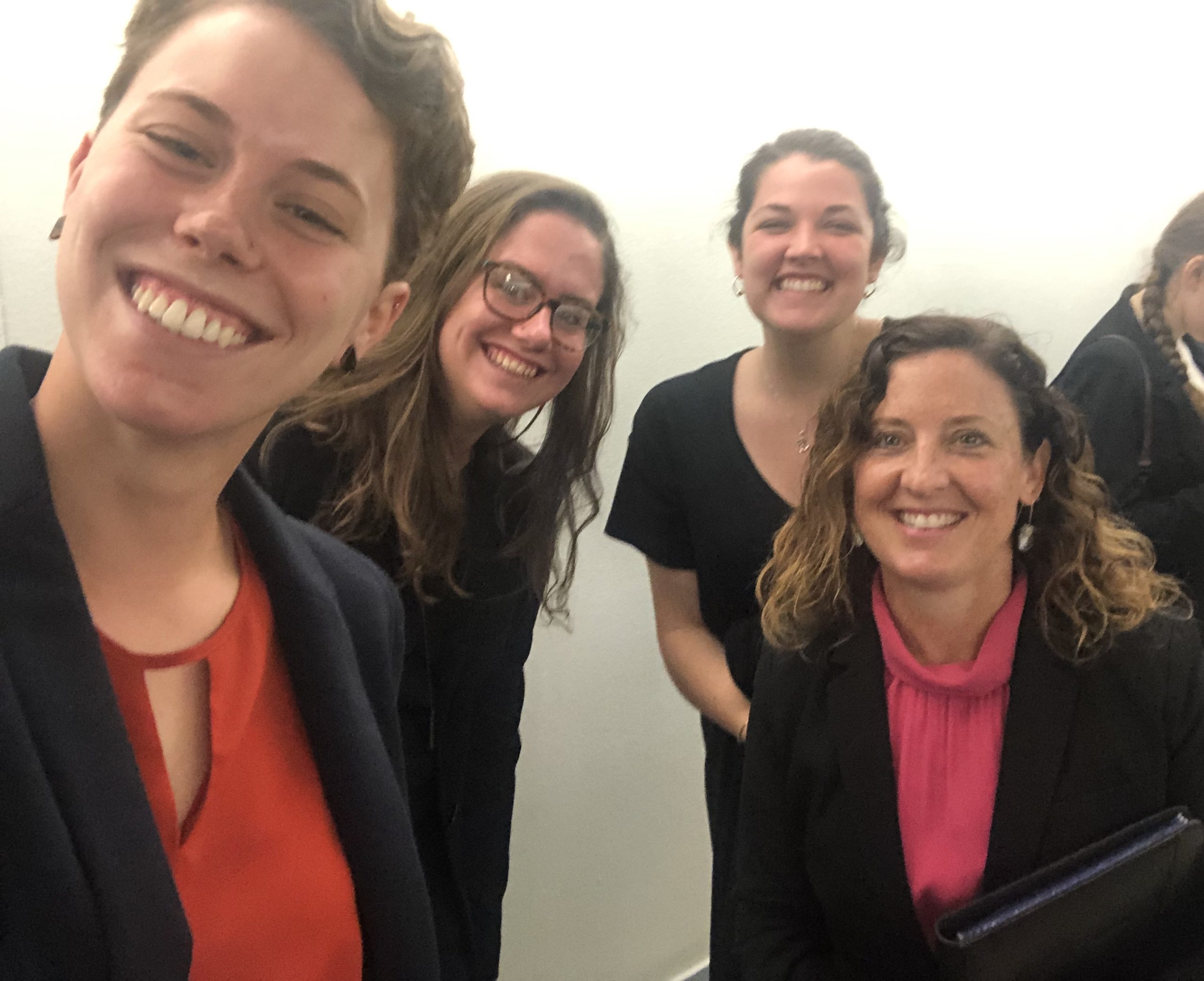Post by: Jennifer Reinkober
 During my time at the National Center on Sexual Exploitation (NCOSE), I have learned a great deal about the intersection of sex (human) trafficking, prostitution, pornography, child sexual abuse, Internet safety and how all of these play a role in the area of sexual exploitation. NCOSE, as well as a number of other organizations with which it is loosely organized, work together to address these concerns through engagement with government officials, particularly at the federal level, as well as working with survivor groups and other organizations who focus on these same issues.
During my time at the National Center on Sexual Exploitation (NCOSE), I have learned a great deal about the intersection of sex (human) trafficking, prostitution, pornography, child sexual abuse, Internet safety and how all of these play a role in the area of sexual exploitation. NCOSE, as well as a number of other organizations with which it is loosely organized, work together to address these concerns through engagement with government officials, particularly at the federal level, as well as working with survivor groups and other organizations who focus on these same issues.One focus area for me was researching the various ways states handle prostitution charges and convictions in the United States. The vast majority of women and children who are prostituted persons have not chosen to enter the lifestyle willingly; rather, they have been trafficked into the commercial sex industry through threat of force or some other form of deception. Many women are coerced into becoming prostituted women before they reach the age of maturity (eighteen) or have a pimp or trafficker who controls them even if they enter the commercial sex industry as an adult. Additionally, women are much more likely to be arrested for prostitution than men. The Federal Bureau of Investigation’s Crime Data Explorer provides crime data on everything from violent to non-violent crimes, as well as the number of arrests as reported by police departments across the country. In 2017, men made up only 38% of those arrested for prostitution-related offenses. In 2016, the percentage for men was the same at 38%, while in 2015, it was only 36% of men. FBI Crime Data Explorer, https://crime-data-explorer.fr.cloud.gov, accessed on July 24, 2019. It is believed that arresting prostituted women is easier for law enforcement because they are often more visible than the buyers (johns).
Because women ordinarily do not choose to become prostituted persons, a number of states are beginning to recognize that prostitution convictions, as well as many of the convictions associated with prostitution, such as loitering and pandering, should be eligible for removal from a person’s criminal record. Many states offer criminal record relief if prostituted persons can demonstrate that they were victims of human trafficking and were forced into prostitution. According to the Polaris Project, which conducted a review of all 50 states, plus Washington DC, 41 states have some sort of process by which persons can have their convictions sealed, expunged, or vacated. Vacatur is the highest form of relief because it is equivalent to exoneration, with expungement as the level below vacatur, and sealed being the lowest level, in which the record is still available to certain government agencies. State Report Cards, Polaris Project, https://polarisproject.org/resources, accessed on July 31, 2019.
These forms of criminal record relief are certainly a step in the right direction in ensuring that prostituted women and children, who have not chosen this life, are given an opportunity to have their records wiped clean. Persons with criminal convictions face an uphill battle in trying to find jobs which require background checks, pursuing a college degree, joining the military, and myriad obstacles. The nine states which have yet to pass these types of laws should do so soon, and all states should make vacatur the gold-standard of the type of relief offered.
This post was written by a Center for Global Justice Intern. The views expressed in this post do not necessarily reflect those of Regent University, Regent Law School, or the Center for Global Justice.
